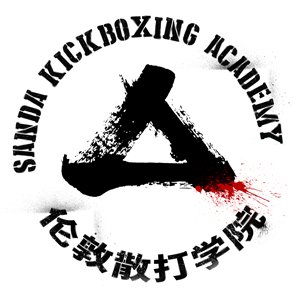How to Train when you are tired
In the ebb and flow of life, there are days filled with vigor and enthusiasm, and then there are days when fatigue clings to you, making even the simplest tasks feel Herculean. For martial artists, consistency in practice is not just a discipline but a cornerstone of mastery. Yet, how do you sustain your training momentum when your body screams for rest, and your mind is shrouded in weariness? The answer lies not in the cessation of practice but in adapting your training to align with your body's needs. Learning to train effectively when tired can not only maintain but enhance your martial arts journey, making you a more resilient and versatile practitioner.
The Value of Training Under Fatigue
Training when you're tired is not about pushing through pain and exhaustion recklessly. It's about recognizing your limits and working within them to cultivate discipline, mental toughness, and adaptability. This skill ensures your practice remains consistent, preventing gaps that can slow progress and diminish skills over time. Moreover, it teaches you about your body, how to listen to it, and how to respond to its signals, which is invaluable both in and out of the dojo.
Strategies for Training When Tired
1. Lower Intensity, Longer Sessions
When energy levels are low, consider reducing the intensity of your training while extending the duration slightly. This approach allows you to maintain technique and form without draining your reserves completely. Focus on perfecting your movements, drills, or kata at a slower pace, which can also enhance your understanding and execution of these techniques.
2. Higher Intensity, Shorter Sessions
Alternatively, if you find it challenging to sustain long periods of focus when tired, opt for shorter, more intense sessions. Concentrate on explosive movements or drills for a brief period. This method keeps your training dynamic and engaging, ensuring you maximize the use of your limited energy effectively.
3. Technical Drills and Light Sparring
Fatigue can be an excellent teacher for honing technique and strategy. Engage in technical drills that require precision rather than brute force, or practice light sparring that emphasizes timing and distance over power. This focus can sharpen your skills and make you a more thoughtful martial artist.
4. Mindfulness and Breathing Exercises
Incorporate mindfulness and controlled breathing exercises into your training routine. These practices can enhance focus, reduce stress, and improve recovery, making it easier to train when you're tired. They also cultivate a mental resilience that transcends the physical aspects of martial arts.
5. Restorative Practices
Balance your martial arts training with restorative practices such as yoga or tai chi on days when you're particularly drained. These disciplines emphasize fluid movement, balance, and breath control, which can help rejuvenate your body and mind, making it easier to maintain your martial arts practice.
Breaking Out of the No Sleep Cycle
One of the hidden benefits of training, even when tired, is its potential to improve sleep quality. Regular exercise, including martial arts, has been shown to promote better sleep patterns by helping regulate the body's natural sleep-wake cycle. Moreover, physical activity can reduce stress and anxiety, common culprits behind sleep disturbances. By adapting your training to fit your energy levels, you can help break the cycle of poor sleep, ensuring you're better rested and more energized for future training sessions.
Conclusion
Training martial arts when you're tired is not only possible but beneficial. It teaches you to be adaptable, resilient, and mindful of your body's needs. By adjusting the intensity, focus, and nature of your training to match your energy levels, you can maintain consistency in your practice. This consistency not only makes you a better martial artist but also contributes to overall well-being, breaking cycles of poor sleep and building a stronger, more disciplined self. Remember, the goal is progress, not perfection. Training smart, especially when tired, is a testament to your dedication and a step towards mastery.


